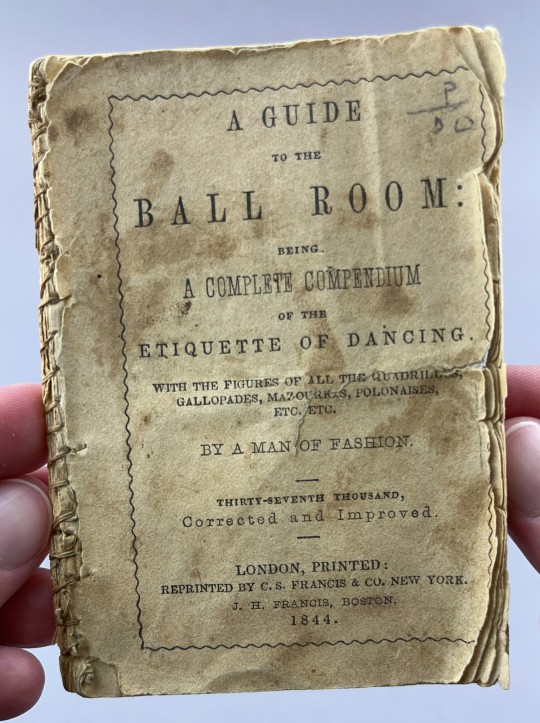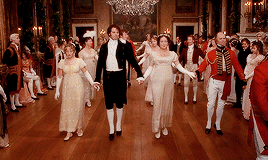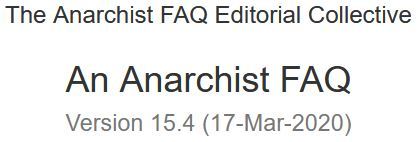#libraries
Text
#MiniatureMonday





A guide to the ball room : being a complete compendium of the etiquette of dancing : with the figures of all the quadrilles, gallopades, mazourkas, polonaises, etc., etc., beautifully embellished / by a man of fashion.
A guide to the ball room is a stunning little book dated all the way back to 1884. Detailing many etiquette and dancing rules, along with instructions, this book is a perfect guide to learning the ins and outs of the ball room.
The back of the book also features a glossary of French terms often used in the ball room. So grab a partner, read this book, and get to dancing--just like those from the 1800s!
--Adair J.

#libraries#uiowa#special collections#miniaturemonday#rare books#dancing#ballroom#miniature books#etiquette#gif
74 notes
·
View notes
Text
#tekken#anime / manga#taehyung x reader#collar bones#dascha polanco#supercars#corruption#与田祐希#lgbtpeople#solar#sooyoung#cameron diaz#blanket#libraries#locs
122 notes
·
View notes
Text
https://melissa-861.mxtkh.fun/yp/NXaMbIO
#cindy mello#adorable#anime / manga#intersectional feminism#idv#supercars#dominated love slave#sexuality#solar#sooyoung#cameron diaz#blanket#libraries#locs#raychiel
127 notes
·
View notes
Text

A.2.4 Are anarchists in favour of “absolute” liberty?
No. Anarchists do not believe that everyone should be able to “do whatever they like,” because some actions invariably involve the denial of the liberty of others.
For example, anarchists do not support the “freedom” to rape, to exploit, or to coerce others. Neither do we tolerate authority. On the contrary, since authority is a threat to liberty, equality, and solidarity (not to mention human dignity), anarchists recognise the need to resist and overthrow it.
The exercise of authority is not freedom. No one has a “right” to rule others. As Malatesta points out, anarchism supports “freedom for everybody … with the only limit of the equal freedom for others; which does not mean … that we recognise, and wish to respect, the ‘freedom’ to exploit, to oppress, to command, which is oppression and certainly not freedom.” [Errico Malatesta: His Life and Ideas, p. 53]
In a capitalist society, resistance to all forms of hierarchical authority is the mark of a free person — be it private (the boss) or public (the state). As Henry David Thoreau pointed out in his essay on “Civil Disobedience” (1847)
“Disobedience is the true foundation of liberty. The obedient must be slaves.”
#faq#anarchy faq#revolution#anarchism#daily posts#communism#anti capitalist#anti capitalism#late stage capitalism#organization#grassroots#grass roots#anarchists#libraries#leftism#social issues#economy#economics#climate change#climate crisis#climate#ecology#anarchy works#environmentalism#environment#solarpunk#anti colonialism#mutual aid#cops#police
41 notes
·
View notes
Text

"Who uses typewriters, anyway?"
— Taylor Swift
This giant typewriter, built by Underwood Typewriter Company, was featured in the Panama-Pacific International Exposition held in San Francisco in 1915.
#taylor swift#the tortured poets department#typewriters#vintage photography#san francisco#history#libraries
40 notes
·
View notes
Text

Overhead view of students and teacher looking at globe of the world at the Main Library, Detroit Public Library. Label on back: "Earth replica. Globe of the world, donated October 24, 1971 by Abrams Foundation. Located just inside the Cass Avenue entrance to Main Library."
Burton Historical Collection, Detroit Public Library
#globe#earth#detroit public library#1971#library#libraries#globes#world#detroit#detroit history#vintage
45 notes
·
View notes
Text

Libraries are good for you in so many ways.
#ai generated#femininity#blouse and skirt#high heels#pleated skirt#satin blouse#satin skirt#pleats please#librarians#libraries#books & libraries#bob cut#blond woman
24 notes
·
View notes
Text

(ID in alt)
Can someone tell me where the sex den drug libraries are? They sound way more fun.
21 notes
·
View notes
Text
Mike Hixenbaugh at NBC News:
METROPOLIS, Ill. — The pastor began his sermon with a warning.
Satan was winning territory across America, and now he was coming for their small town on the banks of the Ohio River in southern Illinois.
“Evil is moving and motivated,” Brian Anderson told his congregation at Eastland Life Church on the evening of Jan. 13. “And the church is asleep.”
But there was still time to fight back, Anderson said. He called on the God-fearing people of Metropolis to meet the enemy where Satan was planning his assault: at their town’s library.
A public meeting was scheduled there that Tuesday, and Christians needed to make their voices heard. Otherwise, Anderson said, the library would soon resemble a scene “straight out of Sodom and Gomorrah.”
The pastor’s call to action three months ago helped ignite a bitter fight that some locals have described as “a battle for the soul” of Metropolis.
The dispute has pitted the city’s mayor, a member of Eastland Life Church, against his own library board of trustees. It led to the abrupt dismissal of the library director, who accused the board of punishing her for her faith. And last month, it drew scrutiny from the state’s Democratic secretary of state, who said the events in Metropolis “should frighten and insult all Americans who believe in the freedom of speech and in our democracy.”
Similar conflicts have rocked towns and suburbs across the country, as some conservatives — convinced that Democrats want to "sexualize" and indoctrinate children — have sought to purge libraries of books featuring LGBTQ characters and storylines. Republican state legislatures have taken up a wave of bills making it easier to remove books and threatening librarians with criminal charges if they allow minors to access titles that include depictions of sex.
To counter this movement, Illinois Democrats last year adopted the first state law in the nation aimed at preventing book bans— which ended up feeding the unrest in Metropolis. Under the law, public libraries can receive state grant funding only if they adhere to the Library Bill of Rights, a set of policies long promoted by the American Library Association to prevent censorship.
Many longtime residents were stunned when these national fissures erupted in Metropolis, a quirky, conservative city of about 6,000 people that has a reputation for welcoming outsiders.
Because of its shared name with the fictional city from DC Comics, Metropolis has for the past half century marketed itself as “Superman's hometown.” Tens of thousands of tourists stop off Interstate 24 each year to pose beneath a 15-foot Superman statue at the center of town, to attend the summertime Superman Celebration, or to browse one of the world’s largest collections of Superman paraphernalia at the Super Museum.
“Where heroes and history meet on the shores of the majestic Ohio River,” the visitor’s bureau beckons, “Metropolis offers the best small-town America has to offer.”
But lately, the pages of the Metropolis Planet — yes, even the masthead of the local newspaper pays homage to Clark Kent — have been filled with strife.
Unlike in comic books and the Bible, the fight in Metropolis doesn’t break along simple ideological lines. Virtually everyone on either side of the conflict identifies as a Christian, and most folks here vote Republican. The real divide is between residents who believe the public library should adhere to their personal religious convictions, and those who argue that it should instead reflect a wide range of ideas and identities.
During his sermon in January and in the months since, Anderson has cast his congregation and their God as righteous defenders of Metropolis — and the Library Bill of Rights and its supporters as forces of evil.
If Christians didn’t take a stand, Anderson warned, there would soon be an entire children’s section at the library “dedicated to sexual immorality and perversion.” And before long, he said, the town would be hosting “story hour with some guy that thinks he’s a girl.”
[...]
A week later, the board went into a closed session and presented Baxter with an ultimatum: If she wanted to keep her job, she needed to sign a performance improvement plan. It stipulated that she would abide by the Library Bill of Rights, seek state grant funding and discontinue praying aloud with children and other religious activities at the library.
Baxter refused to sign and began to criticize the board. Voices were raised, according to three members.
After a few minutes, James, the board president, slammed her fist on the table.
“This is not up for debate, Rosemary,” she said. “Either sign it, or don’t.”
Baxter stood up and left.
Minutes later, the board came out of closed session.
By a vote of 5-3, they terminated Baxter’s employment.
Baxter’s departure left the library in turmoil. Four employees resigned soon after, and the board got to work picking up the pieces.
They brought on a former library employee to serve as interim director and embarked on top-to-bottom reviews of the library’s catalog and finances.
“Our focus,” James said, “is making sure our library is strong and healthy and there to serve everyone.”
Then, on March 19, the story of Baxter’s firing was picked up by Blaze Media, a national conservative outlet. In a column titled, “A librarian’s faithful service is silenced by a secularist takeover,” conservative talk radio host Steve Deace interviewed Baxter and Anderson and reported that both had come under fire for their Christian beliefs.
Deace presented the local saga as a warning that evil forces were now coming for small-town America and blamed the problems in Metropolis, in part, on “a California transplant who is living with another man,” referring to Loverin, the library board member.
Three days later, Metropolis Mayor Don Canada — who in 2021 had appointed Anderson, his pastor, to an open seat on the City Council — took a stand of his own.
In letters addressed to James and two other board members, Canada announced that he’d “lost faith in the Board in its current state.” As a result, he was removing James and two others who’d voted to terminate Baxter.
In Superman's alleged hometown of Metropolis, Illinois, the town has been engulfed with strife over conflicts on the direction of the town's public library, with Eastland Life Church Pastor Brian Anderson leading a war against the library as part of the faux moral panic about LGBTQ+ books that right-wingers falsely claim such books "sexualize" children.
#Metropolis Illinois#Illinois#Libraries#Book Bans#Book Banning#Public Libraries#Anti LGBTQ+ Extremism#Eastland Life Church#Brian Anderson#Alexi Giannoulias#Illinois HB2789#American Library Association#Metropolis Public Library#Rhonda James#Rosemary Baxter#Library Bill of Rights#Culture Wars#Steve Deace#Don Canada#Library Boards
26 notes
·
View notes
Text
The Artist Lazily Attempts an Automatic Poem
Thinking thinking think ing I
think
therefore I be I
am I
are we
are grammar
how funny
how queer
how shocking
how terrible
how how how how how
stop
enough of hows let’s give it a wherefore
maybe even a
why
maybe even an
if
or a who
who
who
I am an owl you see
and I will write screeching
my fingers on the blackboard-ish I will
write
of dogs
and emojis maybe
and glue
and glow worms
and all the millions of things I could write about were I a french impressionist or surrealist or some great fashionable artist with the thrill of painting or creation in my water
I love the words but they won’t come to me.
#poem#poetry#poems on tumblr#books & libraries#literature#poems#words#spilled ink#spilt ink#libraries#writing#writing on tumblr#writers on tumblr#I’m taking a class on French surrealism#and a lot of their poets did automatic writing#so I figured I’d give it a spin! you’re welcome André Breton
20 notes
·
View notes
Text
To this day people will cry over the knowledge and works destroyed when the library of Alexandria was burned down.
And yet no tears are shed as Palestinian archives and libraries are bombed.
Saint Porphyrius Church, a structure built in the 5th century and the 3rd oldest church in the world has been bombed.
It's not an accident.
Israel aren't simply killing Palestinians, they are trying to erase that there ever were Palestinians in the first place.
Destroying their livelihoods, trying to to destroy their culture and history and pretend this land was never there's.
It's easy to deny someone's existence when there's no record of them.
Which is why it's so important to look at the atrocities and bear witness to what's happening.
But to also recognise that Palestine is more than it's suffering.
There is a living breathing culture, of art, history, literacy which all come from the Palestinians.
Traditions they've carried for centuries.
So while we mourn the dead, we shall fight for the living. Fight for the preservation of their crafts, amplify their voices as they speak on their culture.
Palestinian history and culture is alive. And no matter how much the world wants to erase that, they cannot and will not.
59K notes
·
View notes
Text

72K notes
·
View notes
Text

33K notes
·
View notes
Photo

Or just go to browse and hang out! I promise it will be inspiring :)
101K notes
·
View notes
Text

A.2.3 Are anarchists in favour of organisation?
Yes. Without association, a truly human life is impossible. Liberty cannot exist without society and organisation. As George Barrett pointed out:
“To get the full meaning out of life we must co-operate, and to co-operate we must make agreements with our fellow-men. But to suppose that such agreements mean a limitation of freedom is surely an absurdity; on the contrary, they are the exercise of our freedom.
“If we are going to invent a dogma that to make agreements is to damage freedom, then at once freedom becomes tyrannical, for it forbids men to take the most ordinary everyday pleasures. For example, I cannot go for a walk with my friend because it is against the principle of Liberty that I should agree to be at a certain place at a certain time to meet him. I cannot in the least extend my own power beyond myself, because to do so I must co-operate with someone else, and co-operation implies an agreement, and that is against Liberty. It will be seen at once that this argument is absurd. I do not limit my liberty, but simply exercise it, when I agree with my friend to go for a walk.
“If, on the other hand, I decide from my superior knowledge that it is good for my friend to take exercise, and therefore I attempt to compel him to go for a walk, then I begin to limit freedom. This is the difference between free agreement and government.” [Objections to Anarchism, pp. 348–9]
As far as organisation goes, anarchists think that “far from creating authority, [it] is the only cure for it and the only means whereby each of us will get used to taking an active and conscious part in collective work, and cease being passive instruments in the hands of leaders.” [Errico Malatesta, Errico Malatesta: His Life and Ideas, p. 86] Thus anarchists are well aware of the need to organise in a structured and open manner. As Carole Ehrlich points out, while anarchists “aren’t opposed to structure” and simply “want to abolish hierarchical structure” they are “almost always stereotyped as wanting no structure at all.” This is not the case, for “organisations that would build in accountability, diffusion of power among the maximum number of persons, task rotation, skill-sharing, and the spread of information and resources” are based on “good social anarchist principles of organisation!” [“Socialism, Anarchism and Feminism”, Quiet Rumours: An Anarcha-Feminist Reader, p. 47 and p. 46]
The fact that anarchists are in favour of organisation may seem strange at first, but it is understandable. “For those with experience only of authoritarian organisation,” argue two British anarchists, “it appears that organisation can only be totalitarian or democratic, and that those who disbelieve in government must by that token disbelieve in organisation at all. That is not so.” [Stuart Christie and Albert Meltzer, The Floodgates of Anarchy, p. 122] In other words, because we live in a society in which virtually all forms of organisation are authoritarian, this makes them appear to be the only kind possible. What is usually not recognised is that this mode of organisation is historically conditioned, arising within a specific kind of society — one whose motive principles are domination and exploitation. According to archaeologists and anthropologists, this kind of society has only existed for about 5,000 years, having appeared with the first primitive states based on conquest and slavery, in which the labour of slaves created a surplus which supported a ruling class.
Prior to that time, for hundreds of thousands of years, human and proto-human societies were what Murray Bookchin calls “organic,” that is, based on co-operative forms of economic activity involving mutual aid, free access to productive resources, and a sharing of the products of communal labour according to need. Although such societies probably had status rankings based on age, there were no hierarchies in the sense of institutionalised dominance-subordination relations enforced by coercive sanctions and resulting in class-stratification involving the economic exploitation of one class by another (see Murray Bookchin, The Ecology of Freedom).
It must be emphasised, however, that anarchists do not advocate going “back to the Stone Age.” We merely note that since the hierarchical-authoritarian mode of organisation is a relatively recent development in the course of human social evolution, there is no reason to suppose that it is somehow “fated” to be permanent. We do not think that human beings are genetically “programmed” for authoritarian, competitive, and aggressive behaviour, as there is no credible evidence to support this claim. On the contrary, such behaviour is socially conditioned, or learned, and as such, can be unlearned (see Ashley Montagu, The Nature of Human Aggression). We are not fatalists or genetic determinists, but believe in free will, which means that people can change the way they do things, including the way they organise society.
And there is no doubt that society needs to be better organised, because presently most of its wealth — which is produced by the majority — and power gets distributed to a small, elite minority at the top of the social pyramid, causing deprivation and suffering for the rest, particularly for those at the bottom. Yet because this elite controls the means of coercion through its control of the state (see section B.2.3), it is able to suppress the majority and ignore its suffering — a phenomenon that occurs on a smaller scale within all hierarchies. Little wonder, then, that people within authoritarian and centralised structures come to hate them as a denial of their freedom. As Alexander Berkman puts it:
“Any one who tells you that Anarchists don’t believe in organisation is talking nonsense. Organisation is everything, and everything is organisation. The whole of life is organisation, conscious or unconscious … But there is organisation and organisation. Capitalist society is so badly organised that its various members suffer: just as when you have a pain in some part of you, your whole body aches and you are ill… , not a single member of the organisation or union may with impunity be discriminated against, suppressed or ignored. To do so would be the same as to ignore an aching tooth: you would be sick all over.” [Op. Cit., p. 198]
Yet this is precisely what happens in capitalist society, with the result that it is, indeed, “sick all over.”
For these reasons, anarchists reject authoritarian forms of organisation and instead support associations based on free agreement. Free agreement is important because, in Berkman’s words, ”[o]nly when each is a free and independent unit, co-operating with others from his own choice because of mutual interests, can the world work successfully and become powerful.” [Op. Cit., p. 199] As we discuss in section A.2.14, anarchists stress that free agreement has to be complemented by direct democracy (or, as it is usually called by anarchists, self-management) within the association itself otherwise “freedom” become little more than picking masters.
Anarchist organisation is based on a massive decentralisation of power back into the hands of the people, i.e. those who are directly affected by the decisions being made. To quote Proudhon:
“Unless democracy is a fraud and the sovereignty of the People a joke, it must be admitted that each citizen in the sphere of his [or her] industry, each municipal, district or provincial council within its own territory … should act directly and by itself in administering the interests which it includes, and should exercise full sovereignty in relation to them.” [The General Idea of the Revolution, p. 276]
It also implies a need for federalism to co-ordinate joint interests. For anarchism, federalism is the natural complement to self-management. With the abolition of the State, society “can, and must, organise itself in a different fashion, but not from top to bottom … The future social organisation must be made solely from the bottom upwards, by the free association or federation of workers, firstly in their unions, then in the communes, regions, nations and finally in a great federation, international and universal. Then alone will be realised the true and life-giving order of freedom and the common good, that order which, far from denying, on the contrary affirms and brings into harmony the interests of individuals and of society.” [Bakunin, Michael Bakunin: Selected Writings, pp. 205–6] Because a “truly popular organisation begins … from below” and so “federalism becomes a political institution of Socialism, the free and spontaneous organisation of popular life.” Thus libertarian socialism “is federalistic in character.” [Bakunin, The Political Philosophy of Bakunin, pp. 273–4 and p. 272]
Therefore, anarchist organisation is based on direct democracy (or self-management) and federalism (or confederation). These are the expression and environment of liberty. Direct (or participatory) democracy is essential because liberty and equality imply the need for forums within which people can discuss and debate as equals and which allow for the free exercise of what Murray Bookchin calls “the creative role of dissent.” Federalism is necessary to ensure that common interests are discussed and joint activity organised in a way which reflects the wishes of all those affected by them. To ensure that decisions flow from the bottom up rather than being imposed from the top down by a few rulers.
Anarchist ideas on libertarian organisation and the need for direct democracy and confederation will be discussed further in sections A.2.9 and A.2.11.
#faq#anarchy faq#revolution#anarchism#daily posts#communism#anti capitalist#anti capitalism#late stage capitalism#organization#grassroots#grass roots#anarchists#libraries#leftism#social issues#economy#economics#climate change#climate crisis#climate#ecology#anarchy works#environmentalism#environment#solarpunk#anti colonialism#mutual aid#cops#police
24 notes
·
View notes
Text





Flowing with @nasa's #EarthDay2024 theme of "Water Touches Everything," we pulled some breathtaking water-inspired photos from our collection:
A sunset over the Pacific at Point Loma
The cascading upper Yosemite Falls
The shores of Laguna Beach
The winding Feather River
Let's celebrate and protect the vital role of water in sustaining our world
26 notes
·
View notes